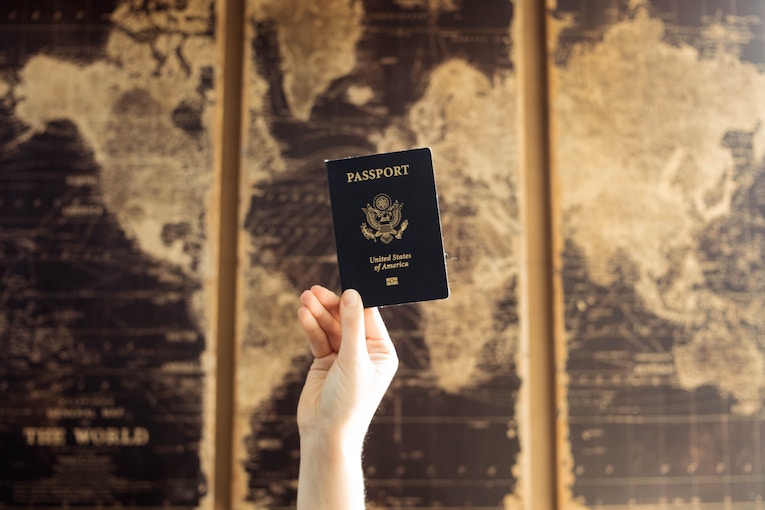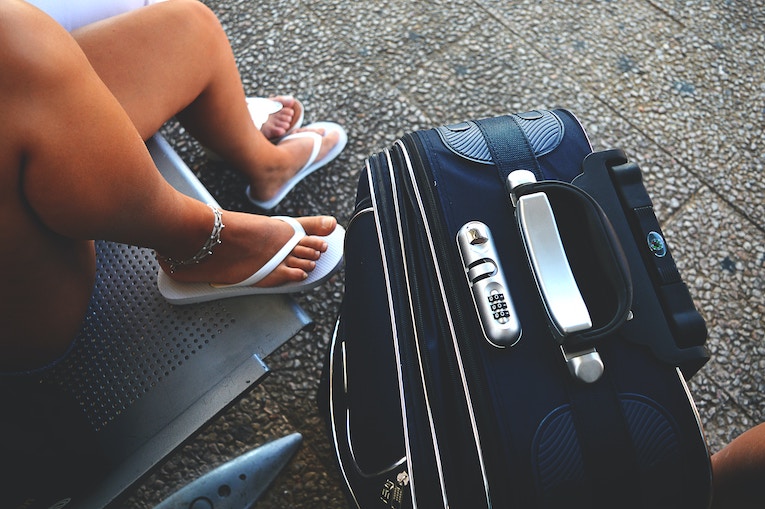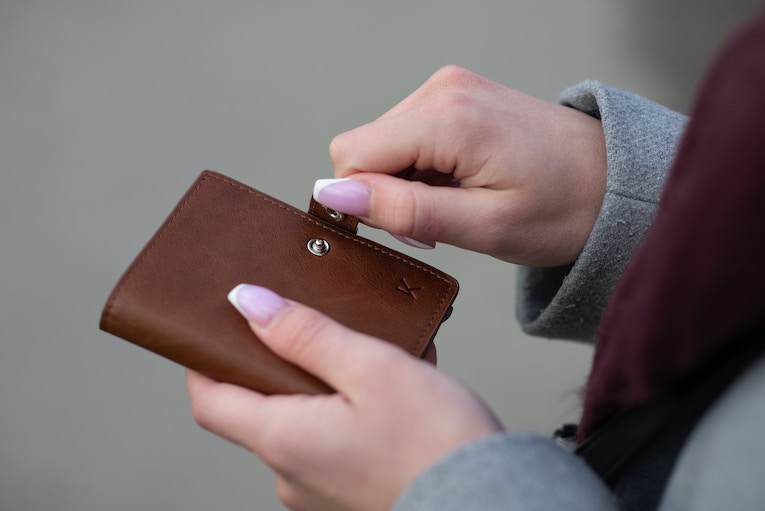Traveling alone for the first time can be intimidating. You may have endless questions racing through your mind, like where to go, how to get there, whether or not it’s safe and easy to get around, and if you’ll get lonely while traveling solo.

Traveling alone is just like any new experience—there can be fear of stepping out of your comfort zone and into the unknown. But as they say, when you step outside of your comfort zone, that is where the real growth and adventure happen.
The top tips for traveling alone for the first time will help get you ready for your big trip. Once you push your fear of the unknown aside, you can start taking active steps to prepare yourself for your first solo adventure.
By planning ahead and learning from experienced travelers, you’ll build your confidence, settle your nerves, get inspired for your first solo trip, and feel fully prepared to spread your wings on your own. You’ve got this!
15 helpful tips for traveling alone for the first time
If solo travel is completely new to you, you may wonder how to travel alone for the first time without any hiccups. There are lots of things to consider when traveling internationally alone for the first time—from the destination to travel logistics to safety while exploring a foreign place.
Not every single destination is the same when it comes to solo travel, so it’s best to take extra precautions and set plenty of time aside to do your research so you can feel confident before you go. Here’s everything you need to know if you’re traveling abroad alone for the first time.
1. Choose a solo-friendly destination
One of the top tips for traveling alone for the first time is to choose a solo-friendly destination that is going to be easy to explore on your own. Some countries are much easier to navigate as a solo traveler than others. Consider destinations with booming tourism industries.
Typically, this means the country is set up to host travelers. You’ll find it easy to navigate and get around by public transportation (so you can avoid getting lost). English is widely spoken in many of these places, so you can communicate to some extent even if you don’t speak the native language.
Popular tourism spots also mean there are tours, hostels, and lots of other travelers—all key when it comes to meeting new people.
2. Consider the local language

Put your skills to good use by ordering your daily snack in the local language.
Do you speak any foreign languages? If you do, you might find it exciting to visit a destination where you can put those language skills into practice. On the other hand, if English is your only language, it’s a good idea to stick to a destination where English is widely spoken if you’re traveling alone for the first time.
If you want to avoid a language barrier all together, consider popular English-speaking destinations like Australia, New Zealand, Scotland, Ireland, and England. But keep in mind that English is common in lots of countries even if it’s not the native language, and many big cities have English speakers. When in doubt, brush up on the local language with an app like Duolingo so you have the basics to help you get by.
3. Plan ahead
Once you know where you’re going, start planning your travels. It’s never too early!
Start looking at flights and comparing flight prices so you can get a good deal on airfare. If you’re traveling internationally alone for the first time, know that planning involves more than getting from point A to point B.
You’ll also need to prepare your travel documents, navigate airport security, and figure out how to get to your accommodation when you land. Ideally, you’ll want to plan to get to your destination before dark and have a good grasp on your transportation options in your destination.
4. Make a backup plan
The truth is, when you travel, things don’t always go to plan. It’s common for flights to get delayed or canceled and for public transportation to fall off schedule. Only the naive believe they can predict everything when it comes to travel plans.
Once you have your plan, write it down and keep it handy. Make sure you have all of your flight information and accommodation contacts, and then make a backup plan.
Is there public transportation if you can’t get a taxi? If your flight is delayed, do you have an extra pair of clean undies and a toothbrush? Remind yourself to stay calm: You’ve got this.
5. Make sure you have an up-to-date passport

Step one: Get your passport. Step two: Discover the world.
If you’re traveling internationally alone for the first time, or have never flown internationally before, you’ll need a passport. Passports can take up to six weeks to obtain, so it’s important to plan well in advance to make sure you have your travel documents in time to fly.
If you already have a passport, check the expiry date. Most international destinations require you to have a passport that’s valid for at least six months after your trip ends. Make sure you meet all the requirements so you don’t run into delays when it comes time to hit the road.
6. Get your visa
What are the visa requirements for your destination? Visa requirements vary from country to country and are also determined by your nationality.
Some countries don’t require a visa, some allow you to get one on arrival, and others require you to apply for a visa in advance and wait for an extended processing time. Do your research to ensure you have a valid visa for the duration of your travels, and apply in advance so that you don’t run into immigration troubles when you fly.
7. Buy travel insurance
If you’re traveling internationally alone for the first time, it’s important to know your insurance in your home country doesn’t cover you abroad. If you get hurt, fall sick, have to be hospitalized, or experience loss or theft while abroad, you’ll want travel insurance already squared away.
Ideally, you won’t get injured or robbed while traveling solo, but it’s always a good idea to plan for the worst case scenario so you can put your mind at ease.
8. Book your hostels in advance
If you’re traveling solo, hostels are usually your best accommodation option. They’re cheap, in central locations, and offer the perfect environment to meet other travelers.
While some hostels are possible to book on arrival, if you’re traveling alone for the first time, it’s ideal to book your accommodation in advance to alleviate some stress—at least for your first few nights. Read the reviews from other travelers so you know exactly what to expect.
If you’re traveling for an extended period of time and want to leave some room for flexibility, consider booking a place with flexible cancellation policies so you have the option of changing your plans if you meet new friends and find travel buddies that take you to unexpected places.
9. Pack strategically

Packing strategically will help take some of the stress out of traveling abroad alone for the first time.
One of the top tips for traveling alone for the first time is to pack strategically and pack light. Traveling solo means you won’t have someone to watch your bags for you throughout your journey. You’ll need to carry them with you and have them easily accessible through the airport, on buses, trains, and in taxis.
It’s best to pack light and adopt a minimalist mindset. Pack basics that you can mix and match and ideally get a backpack that is lightweight and comfortable to carry. It’s such a small thing, but packing light will make you feel a lot more comfortable when traveling alone for the first time because you won’t need to worry about carrying extra weight.
10. Get your fill of blogs and vlogs
Before you set off on your first solo travel venture, indulge in some inspiration! Travel blogs and vlogs won’t only get you excited about your trip, but they’ll also give you practical advice on how to travel alone for the first time.
You’ll find even more ideas of how and what to pack, how to get around in your destination, where to stay, and the best places to eat, drink, explore, party, and make friends. Take some notes from experts and seasoned travelers, and get excited for the adventure of a lifetime.
11. Get a local SIM card
Technology makes it easy to stay connected while traveling abroad alone for the first time. Most countries offer flexible SIM card options that you can buy on arrival before you even leave the airport, so you can have access to your phone while overseas.
With a SIM card, you can access maps to easily navigate around a new city, order Ubers and taxis if needed, look up public transportation timetables, translate foreign words, and make plans to meet up with new friends you meet along your journey. On top of all of that, you can keep in touch with loved ones at home so that they know where you are and that you’re safe.
12. Keep your money safe

When you’re traveling internationally alone for the first time, you’ll want to take some precautions with your money.
Before traveling alone for the first time, be mindful of your money. Create a budget for yourself, taking into consideration the currency conversion rate and international transaction fees on your bank cards.
Let your bank know before you travel and keep photocopies of your credit cards in case of theft. It’s always a good idea to carry cash in the local currency, too. You can do this before you leave, or at a local currency conversion shop when you arrive.
Last but not least, don’t carry all of your money with you when you’re out and about while traveling! Keep some in a safe or locker at your accommodation to avoid being a target for scammers.
13. Connect with people
One of the best parts of solo travel is the friends you make. It may sound intimidating at first, and it’s natural to worry about being lonely when traveling alone for the first time. But solo travel puts you in the best position to make friends with other solo travelers.
Don’t be afraid to strike up conversations with people at hostels, on tours, or while sightseeing. Smile, ask a friendly question, and invite someone new to join you for dinner or a drink. You might find striking up a conversation could be the first step in finding a short-term travel buddy or a forever friendship.
14. Blend in
Traveling alone isn’t dangerous, but you can be more vulnerable when traveling solo. To avoid unwanted attention, do your research before you go so you know how to blend in.
Learn the local customs, be able to speak a few words in the local language, and wear modest clothing that isn’t too flashy and doesn’t scream “tourist” from a mile away. The more you blend in, the more comfortable you’ll feel and the safer you’ll be while traveling alone for the first time.
15. Listen to your gut
Traveling solo is often the smartest thing you can do for your personal growth. If you’re following your inner knowing and saying “yes” to traveling alone for the first time, continue to remind yourself that your inner knowing is strong.
Listen to your intuition and let it guide you. If something doesn’t feel right, don’t do it—even if that means an awkward conversation or stating your boundaries to someone you don’t know. Your gut will keep you safe and guide you in having the best solo travel adventure for you.
Traveling abroad alone for the first time doesn’t have to be scary

You’ve got this, first-time solo traveler. Where will you go?
Don’t let your fear of traveling alone hold you back from the adventures of your dreams. Yes, traveling alone for the first time can push you outside of your comfort zone, but it doesn’t have to be scary. You have everything you need inside of you to make your solo travel experience exactly what you want it to be. Be smart, plan ahead, listen to your intuition, and remember—you’re never truly alone!
